Dear Parents,
At this point in the school year, children have especially been learning in small groups based on their progress and readiness for different materials and concepts. We are considering each individual and their current path for growth, and soon enough, we will be sharing with you in detail about how your child is being challenged during the conferences coming up. In the meantime, just to get a better understanding on how the classroom is running at this point in the school year, many lessons are divided up into small groups that look like this:
New / First Year Students: Generally younger students who are ready for Montessori introductions in pre-academic areas, practical life materials, and more.
Advanced / Intermediate Students: Generally older students who have been in the Primary class for at least a year or two. They have learned the pre-requisites to our advanced Montessori materials, showing readiness in areas such as academics and Montessori extensions.
Note: While some students are on the verge of readiness in different subject areas and some could use reviews, they may occasionally find themselves in the opposite groups for exposure of lessons that will be beneficial for them.
To build community in the classroom, we make a point to mix the age groups and different stages of development for particular lessons in the classroom on a weekly basis, and we hope that you have been hearing about some of these activities. For example, you may have heard about “Science Fridays,” which had organically developed this school year by Ms. Lauren, as students have had rising curiosities and questions in our science area. This is one of the many examples of what we mean by the phrase “follow the child” in the Montessori Method; we do our best to find ways to incorporate our lessons around the students’ interests.
To give you an idea of all of the lessons that your children are seeing, we will share with you lists of recent lessons from the 3 types of groupings:
New / First Year Students, Advanced / Intermediate Students, and “All,” i.e., lessons that every child is included in (presented within mixed age groups).
Lessons Given to New / First Year Students in 2022
Practical Life
- Grasping Works: how to sort tiny objects with fingers
- Sponge Transfer Water Work
- Intro. to Push Pins (and safety using sharp objects)
- Screws & Bolts Works
- Pouring with Pitchers: wet & dry pouring
- How to Use Pencils, Scissors, Art Paper & Glue Sticks
- Scooping Transfer Works: use of various spoons to transfer tiny objects
- Dropper Work: transferring water from one vase to another
- Tongs Works: how to hold and transfer tiny objects with tongs
- Pin Cushion Work: decorating with pins & beads
- Self-Serve Snack Station: how to serve yourself, eat safely and politely, & clean up afterward
- Containers Work: opening & closing various containers
Math
- 1 through 9 Color Coded Beads: organizing and matching quantities to digits
- Spindle Box: learning digits 1 – 9, the physical quantities, and organization
- Small Rods: numbers 1 through 10
- 1 through 9 Miscellaneous Bead Sort
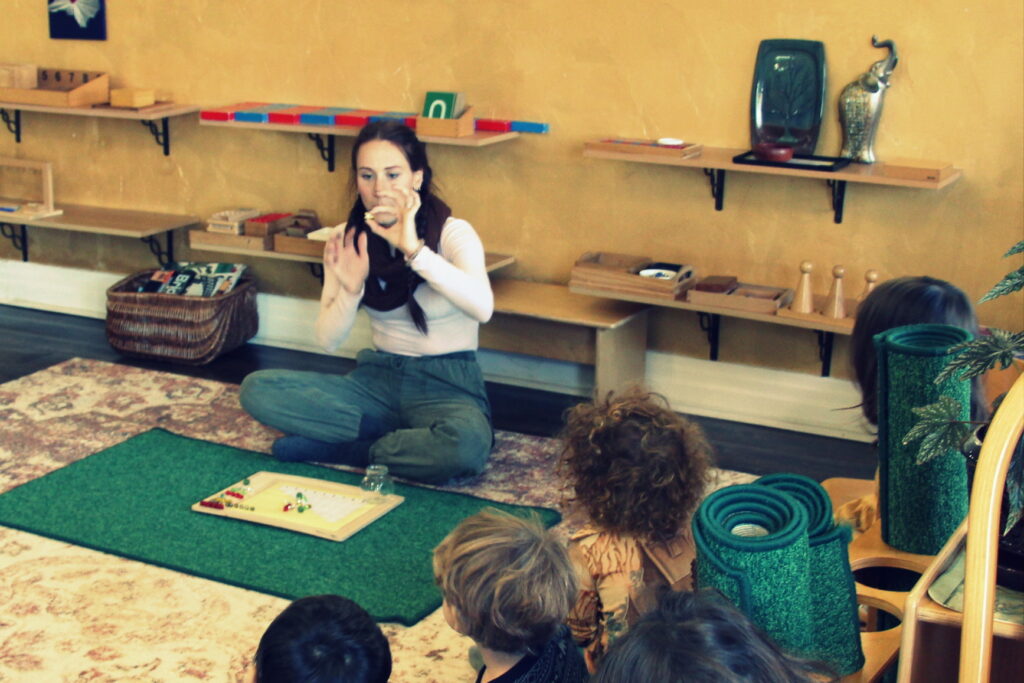
Geography
- Continent Puzzle & Globe
- Continent Cards
Sensorial (Developing & Isolating our Senses)
- Blindfold & Headphone Safety: for isolating senses with materials
- Intro. to the Mystery Bag: exploring textures & vocabulary
- Intro. to the Geometric Solids: vocabulary – cube / cylinder / cone
- Color Matching Tablets
- Color Hue Tablets: organizing colors from darkest to lightest
- Red & Blue Cylinder Boxes: grading material & comparative/superlative vocabulary
- Binomial Cube
- Knobbed Cylinders: grading material & language around dimensions
- Sound Cylinders

Language
- Tracing Letters: lesson on tracing letters in dry star pasta
- Intro. to Metal Insets: pre-writing activity on how to trace inset shapes
- Beginning Sounds: introducing alphabet sets through phonetics
- Intro to Letter Mugs: within each mug contains tiny “beginning sounds objects” for a (lowercase) letter. Children learn to say each object while matching it to the appropriate letter.
- Intro. to 3 Part Cards: Montessori Nomenclature Cards – cards with pictures & words for matching & learning vocabulary words
Botany
- 3 part Cards for Flowers
- Wooden Flower Puzzle
- How to Build Plant Puzzles off to the Side of the Frames
Grace & Courtesy / Respect for Self & Environment
- Ground Rules Review
- Safety Around the Classroom: focus on mirrors, scissors, glass & fish Tank
- Feelings Lesson on Kindness, Responsibility, & New Friendships
- Using Our Words & Not Physical Aggression: including the dangers and consequences of biting, pushing, hitting
Miscellaneous / Montessori Inspired / Inventive Works
- Rainbow Puzzle
- Bead Sorting & Threading
- Finding Order when Putting Puzzles Together: wooden puzzles, jigsaw puzzles, and more
Lessons Given to Advanced / Intermediate Students in 2022
practical life
- Napkin Folding
- Zipper Frame
- Sweeping Work
Math
- 100 Cube Work
- 100 Board
- Teens Board
- Fraction Cards
- Math Beads: sorting & organizing
- Math Addition Work with Number Rods
- Tens Board
- Gem Addition Work & Writing Extension
- Skip Counting with Felt Cards
- Skip Counting by 10s & 100s


Sensorial (refining the senses/ geometric solids materials including some direct & indirect math extensions)
- Red Rods: maze extension
- Color Mixing Paddles: extension with light board
- Binomial Cube
- Trinomial Cube
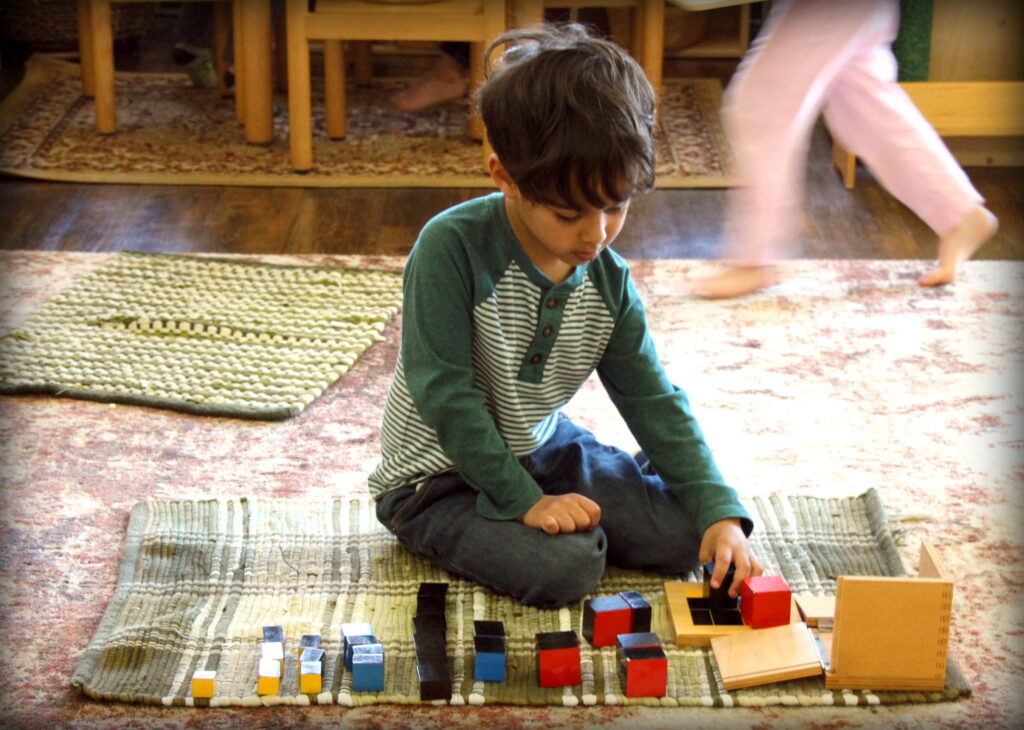
Language
- Letter Booklets & Writing Activities
- Beginning Sounds Reviews
- Metal Inset Extensions: indirect artistic writing preparation
- 3 Lettered Word Building with Nouns (note: the vowel is in the center of the word, for example: cat, dog, pin, mat)
- Letter Sorting: z, y, x (lowercase)
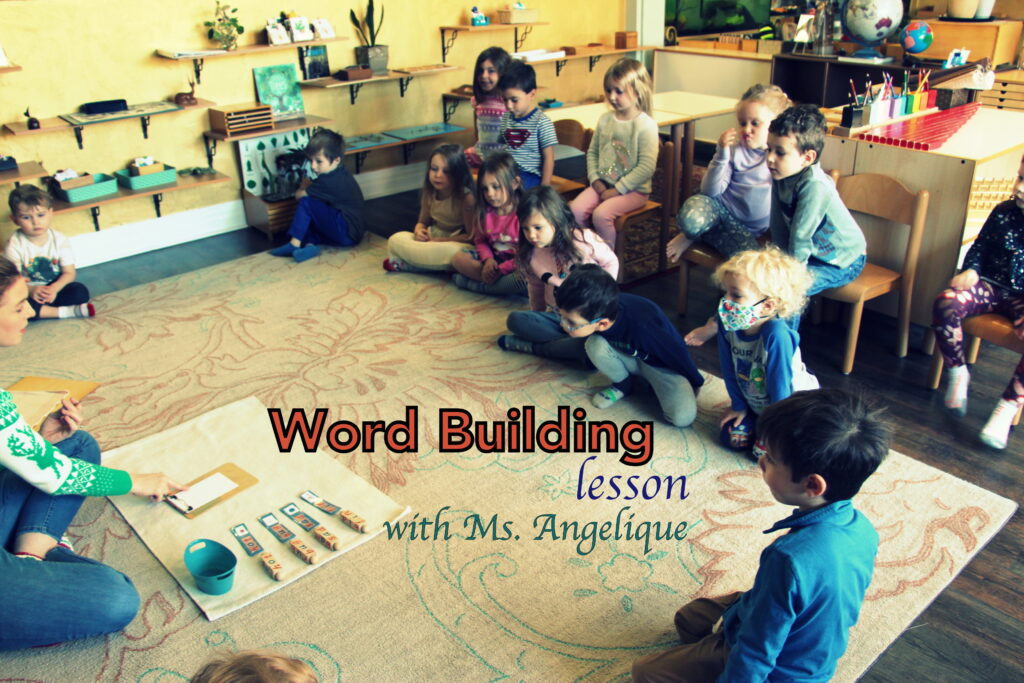
Geography
- South America Puzzle Map
- North America & a Closer Look at the United States of America: maps, cultures, landmarks, etc.
- Puzzle Map of Africa Countries
- African Countries: lifestyles, landmarks, agriculture, etc.
- Puzzle Map Reviews
- Continent Coloring Pages

Sciences
- Skeletal Puzzle
- 3 Part Fossil Cards
- Moon Phases Book & Puzzle

Grace & Courtesy / Respect for Self & Environment
- Behavior at Home vs. School: ways to apply our school ground rules at home
- Ways to be Helpful in Class
- Cozy Area Lessons on Self Regulation
- Exclusion & Considering Others’ Feelings
- Expanding Friendships & Learning from Others
- Kindness & Inclusiveness

Miscellaneous / Montessori Inspired / Inventive Works
- Chess Introduction: pawns motions
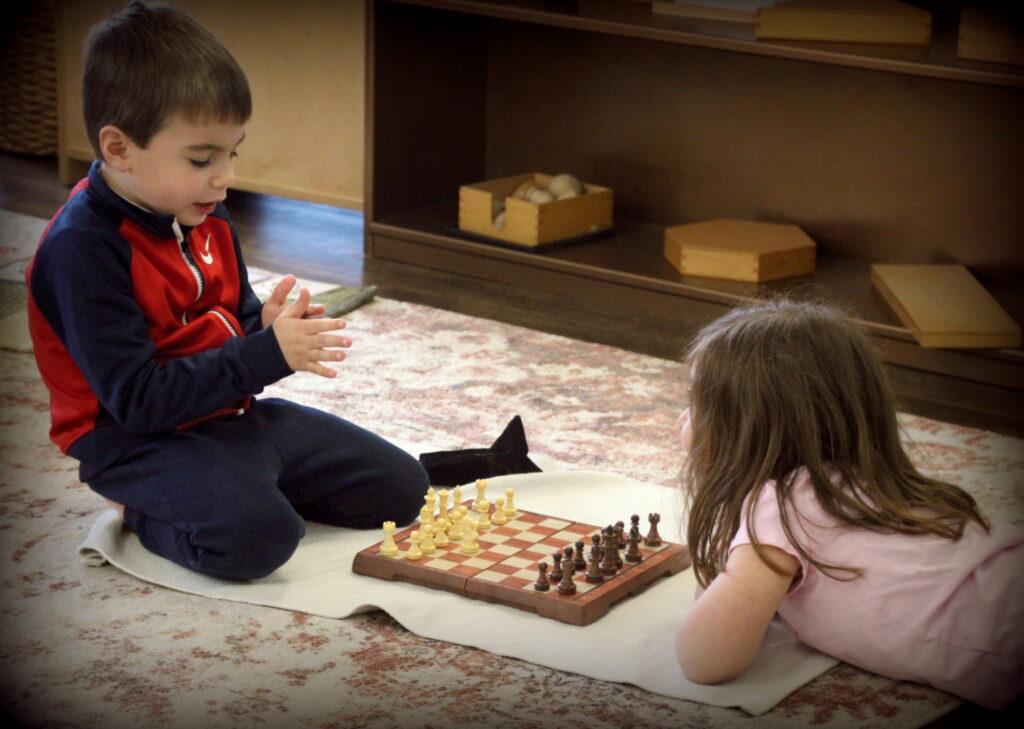
Lessons Given to All Students in 2022
Art
- Daily: Art Activity Pages
- Communal Art Collages
- Pin Poking: learning to take a push pin and poke holes around a tiny shape to “pop the shape out of the paper,” for building coordination and refining the pincer grip
- Lessons on Impressionism, Expressionism & Modern Art
Music
- Music Class: singalongs, including songs with sign language, and occasionally holiday songs (non-religious / friendly for all)
- Bells Review: Intro. to sheet Music & C Major Scale
- Piano Lessons: approaches to quiet piano playing during work cycle
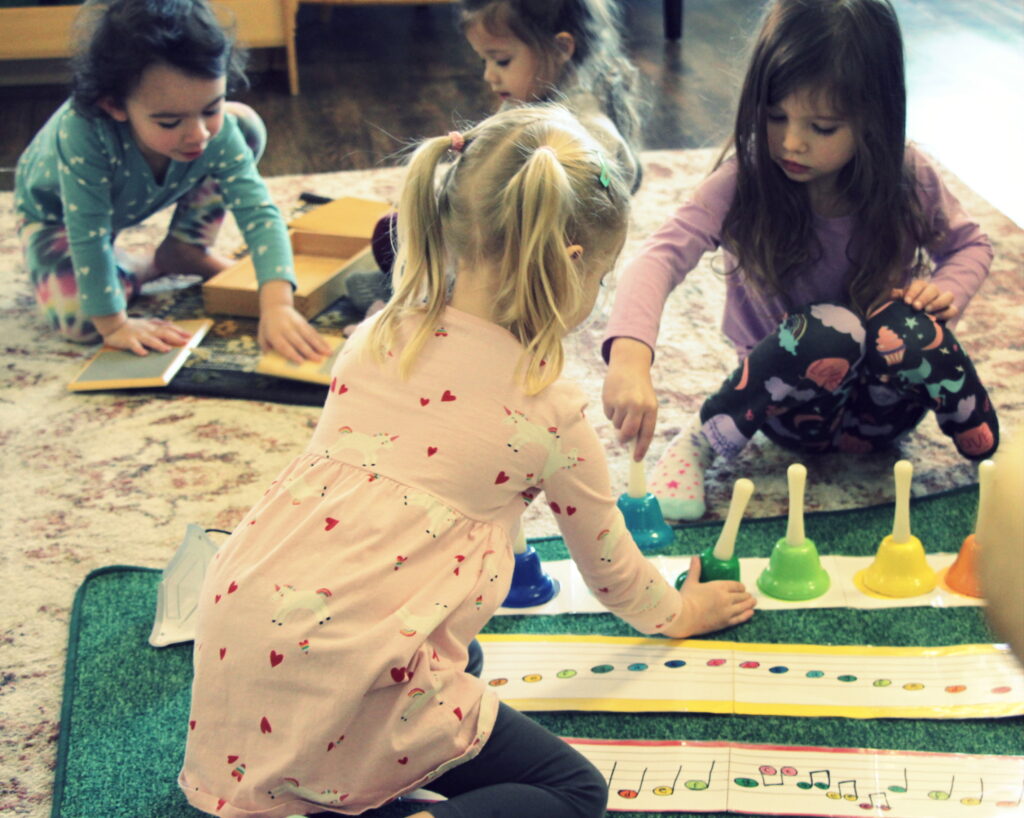
Practical Life
- Kinetic Sand Hidden Treasure Work
- Tac Work
- Lacing & Unlacing Shape Frames
- Water Transfer Works
- Pin Poking Review
- Banana Cutting
- Flower Arranging

Math
- Bead Powers Tray
- Calendar: counting ordinal numbers
- Evens & Odds
Sensorial
- Balancing Work: various geometric solids for building and balancing towers
- Colored Peg Hues: sorting, grading, and matching pegs from darkest to lightest
- Mystery Bag: updated materials to teach about vocabulary around textures
- Sound Cylinder Review
- Geometric Solids Review
- Color Matching Review
- Review of All Cylinder Boxes
- Triangle & Hexagonal Boxes
Language
- Library Books: teachers review new library books available in our library for children to consider exploring, along with several books read throughout the week
- Metal & Wooden Inset Works: for tracing
- Beginning Sounds Objects Review (i.e., mug works)
- Books on Friendships

Sciences
- Storytelling Works for Seasons: previous season (winter) and current season (spring)
- Layered Anatomy Puzzle
- Mammal / Plants / Fungi Sorting Work
- Leaf Insets
- Orbits & Seasons
- Dinosaur & Fossil Work
- Ocean Objects: talking about textures and comparisons
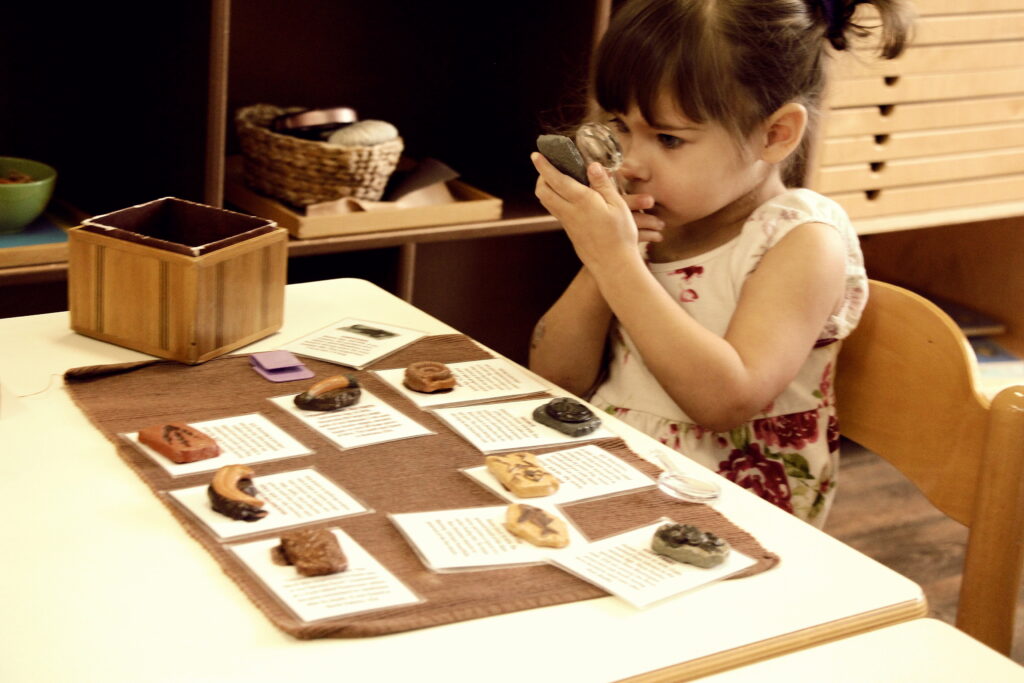
Botany
- Leaf Insets
- Observation Station of Classroom Plants

Zoology
- Animal Sorting: Mammals / Amphibians / Birds
- Butterfly Life Cycle
Culture
- Valentine’s Day Lessons about Love & Friendship
- Valentine’s Day Art Themed Activities
- St. Patrick’s Day Lessons on Highlights of St. Patrick’s Life & Goals
- St. Patrick’s Day & Irish Culture Activities & Lessons
- Library Books on People in North America, South America, Africa, and Europe
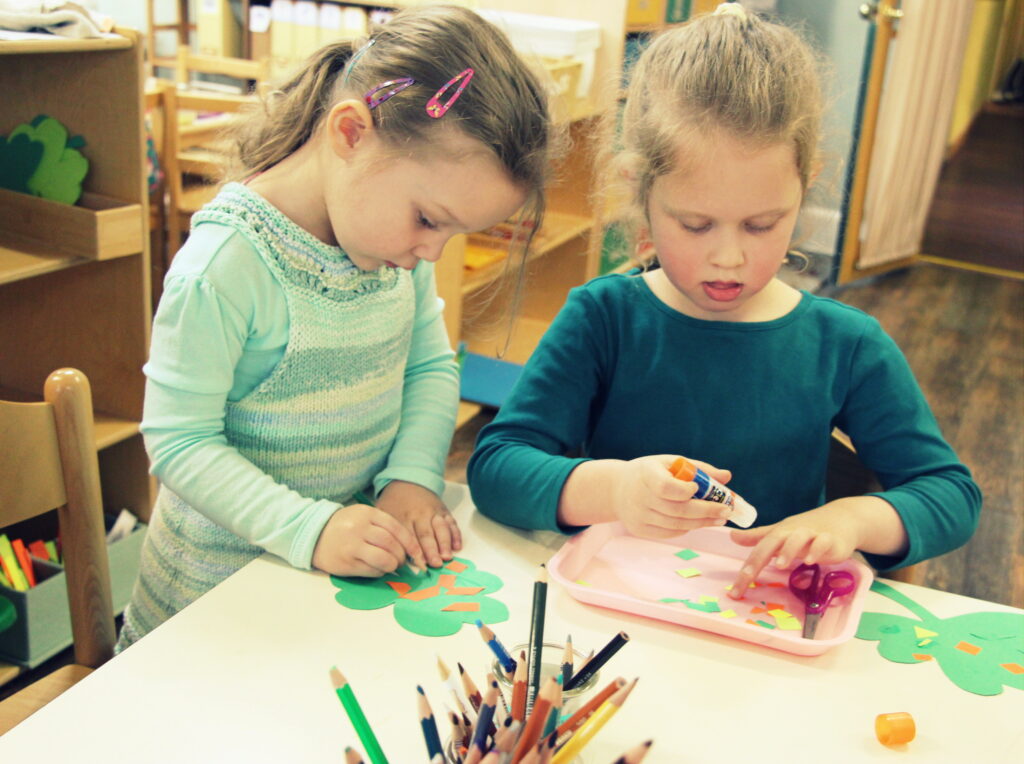
Grace & Courtesy / Respect for Self and Environment
- Ground Rules of the Classroom
- Careful Handling of Materials in the Classroom (and what not to do)
- Cozy Area: how to utilize the materials for meditation and self-regulation
- Recycling & Caring for the Environment
- Feelings Vocabulary Words & Color Coded Charts for Feeling Recognition
- Positive Communication with Storytelling Works
- Cooperative vs. Competitive Work
- Lessons on Interrupting Politely
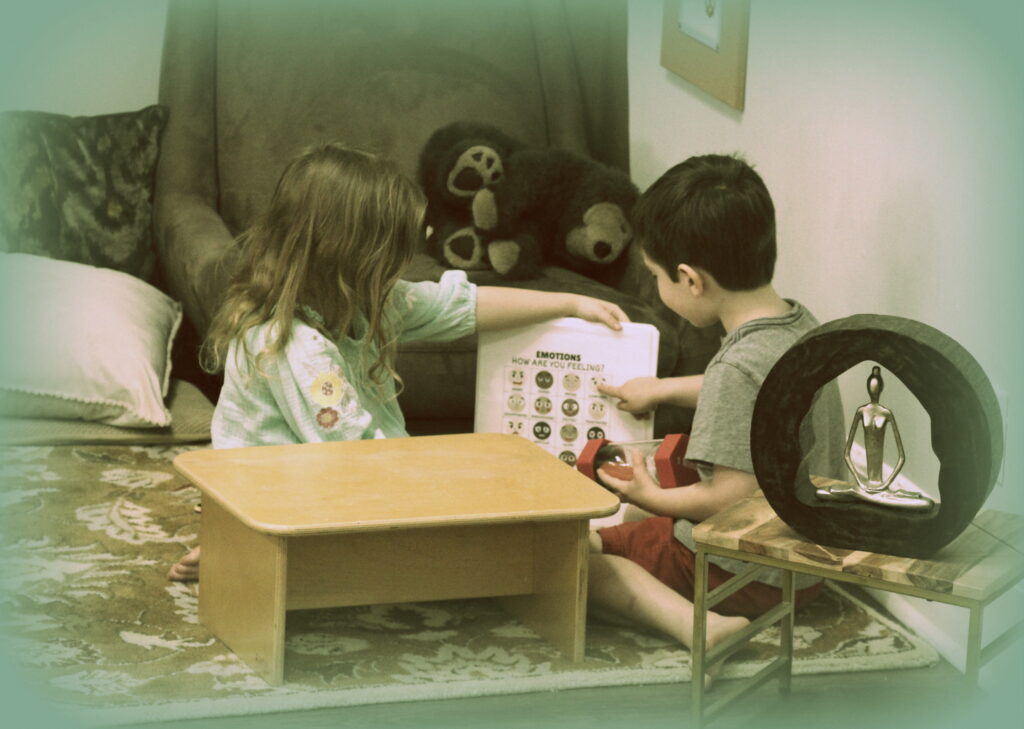
Last But Not Least: Science Fridays!
The following lessons (given to all students) tend to fall under a variety of subject areas, especially focusing on the science involved through experiments and observations.
- Study of Light: Key focuses include light waves, energy, and colors (primary, secondary, and tertiary)
- Study of Light & Shadows with 2D & 3D Shapes: how we can make shadows, shadow cast art papers, vocabulary: translucence / opaque
- Slime Experiment: making oobleck slime
- Sink & Float Work: key words include density and buoyancy
- Mass, Matter, Inertia & Energy: marble run, Newton’s Cradle, magnetic marbles
- How Soap Works: soap & butter cleaning
- Different Types of Pollinators
- Propagation Presentation
- Botany: Observational Experiment of Color Changing Flowers (with food colored water)
- Density & Buoyancy Work: with aluminum foil and water
- Color Mixing with Droppers & Food Colored Water
- Follow Up Observation Lesson on Color Changing Flowers (days later)


As we enter the season of spring, you may have noticed there has been a big focus on plant life in our classroom. We have a variety of potted plants, especially vine plants, throughout our classroom that children have been observing and talking about. When discussing the seasons, our students are hearing about chlorophyll, life cycles of plants, plant growth, propagation and more. As we “follow the child,” our students are also flipping through library books on these topics that branch out into season changes, pollinators, and animal species.
As always, we will leave you with a variety of photos that include your children tuning in at circle times and staying busy during the work cycles. Be sure to share these images with your child to get them talking more about their school days!


Thank you for stopping in! Please let us know that you visited this post by sharing feedback below. We love to hear from you! Looking forward to sharing more soon.





















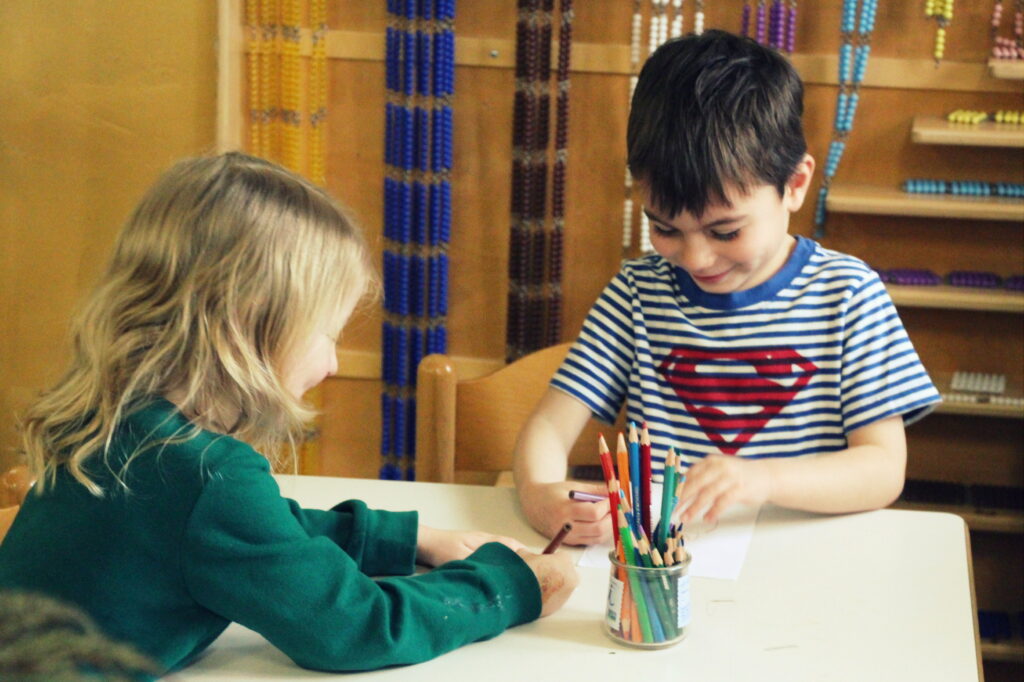






















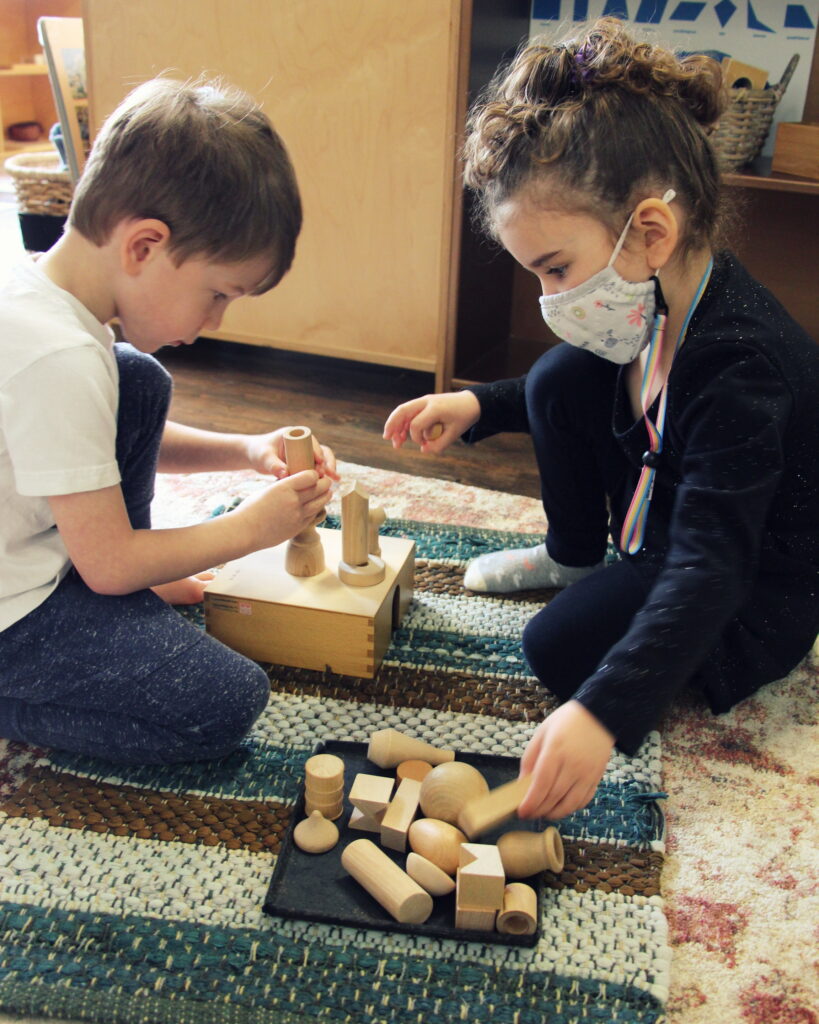

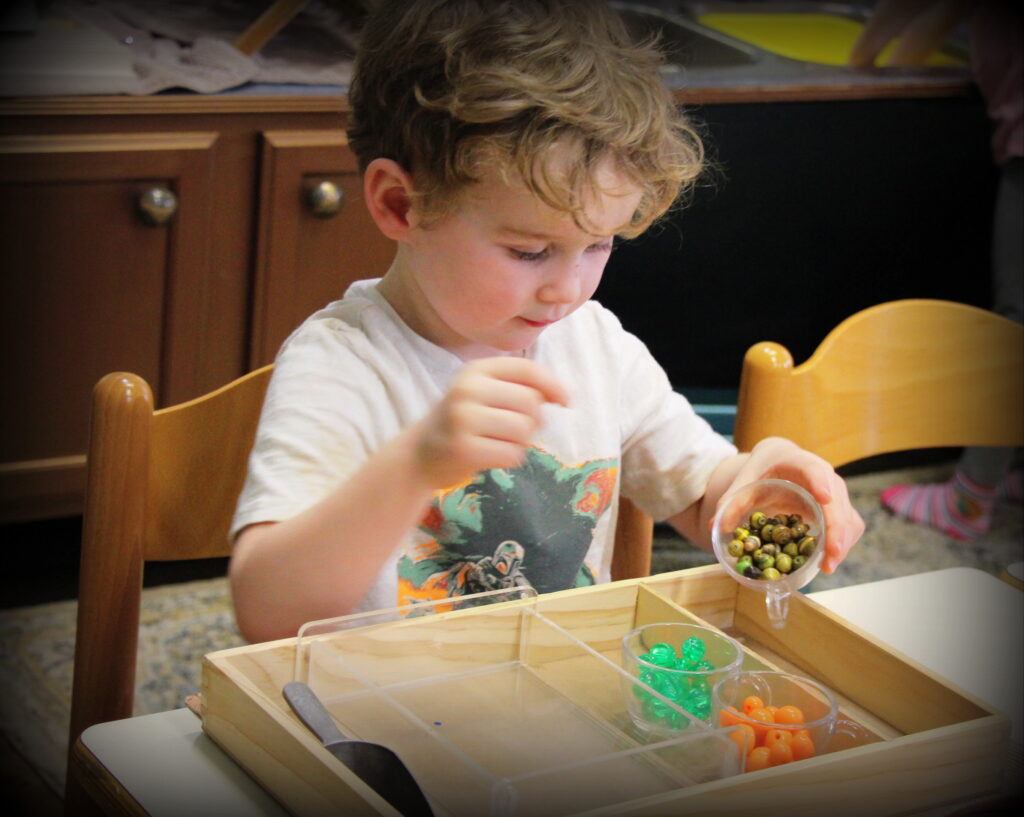




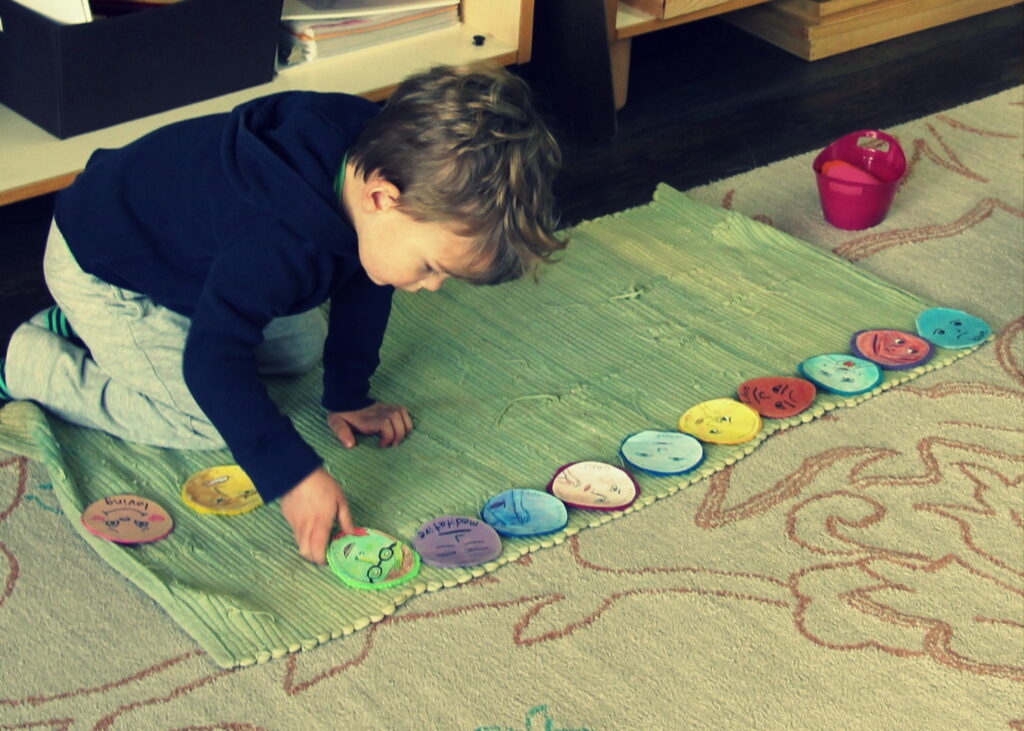















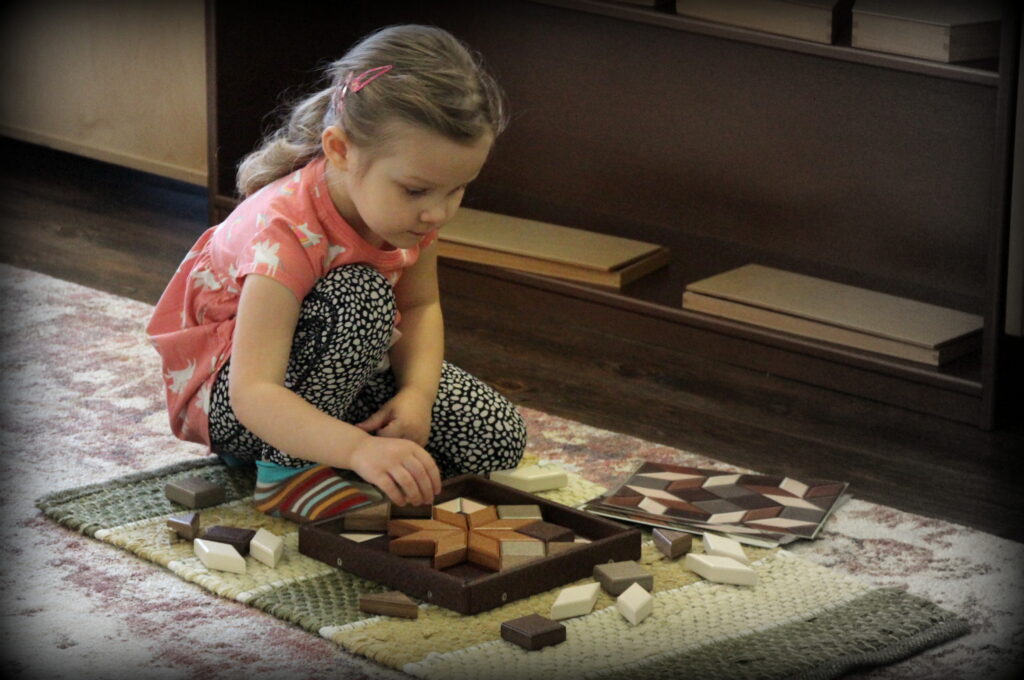

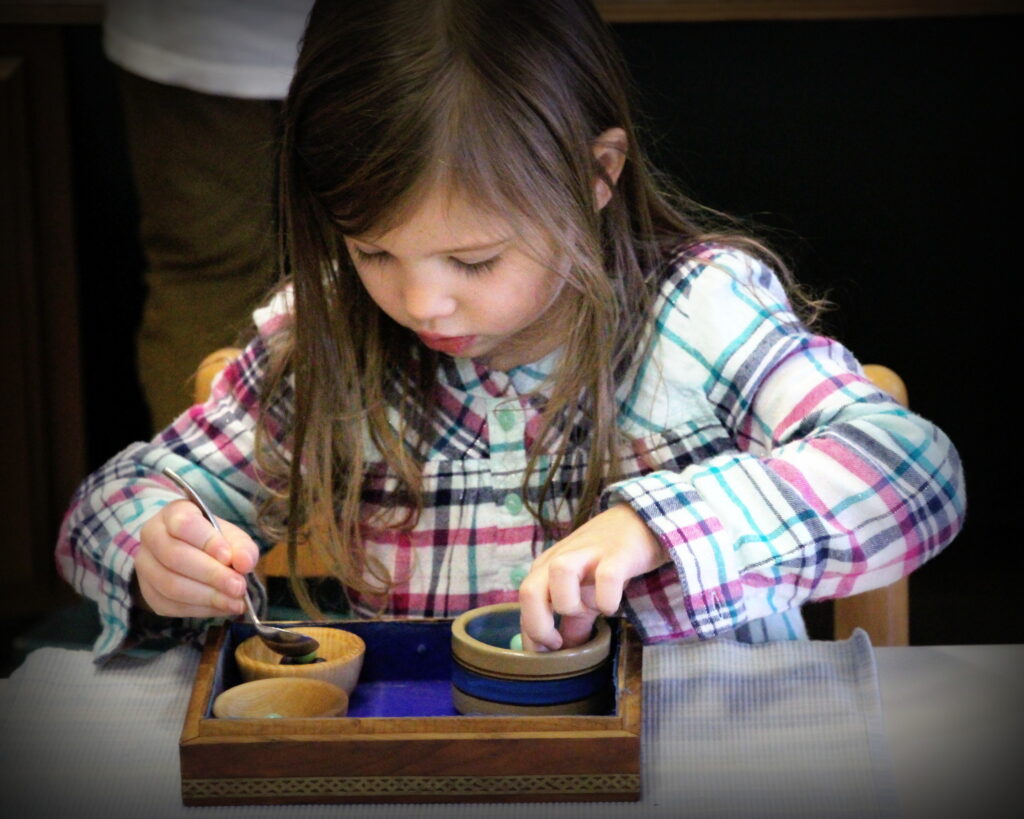



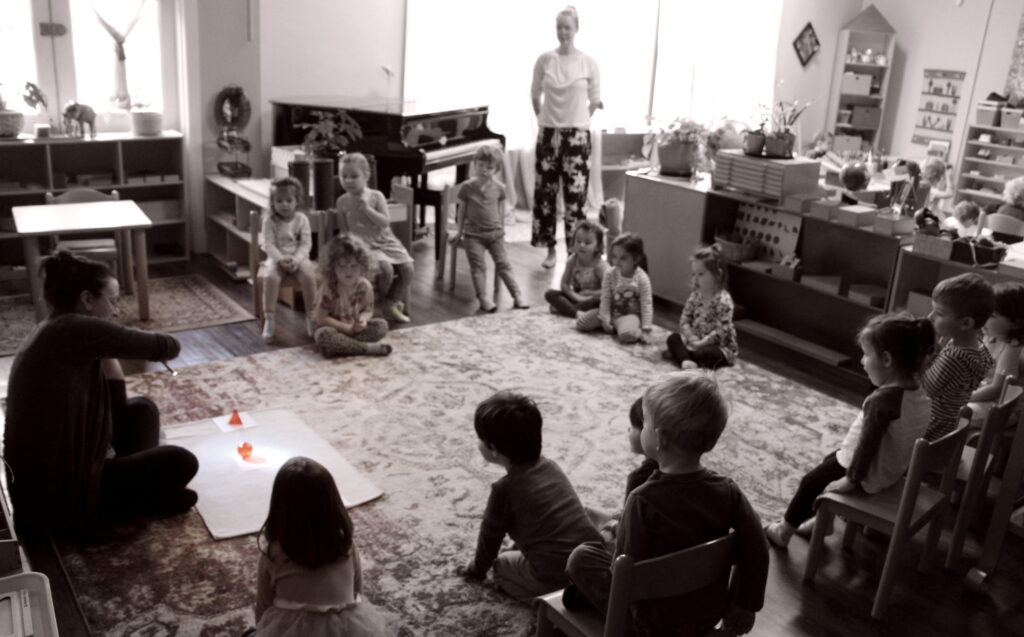
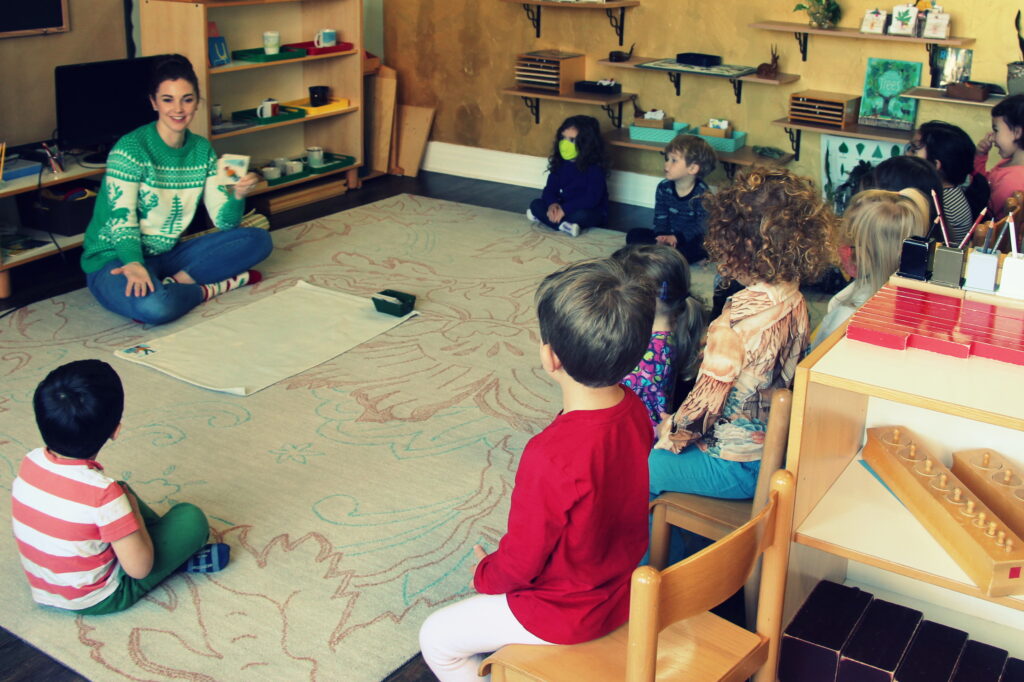
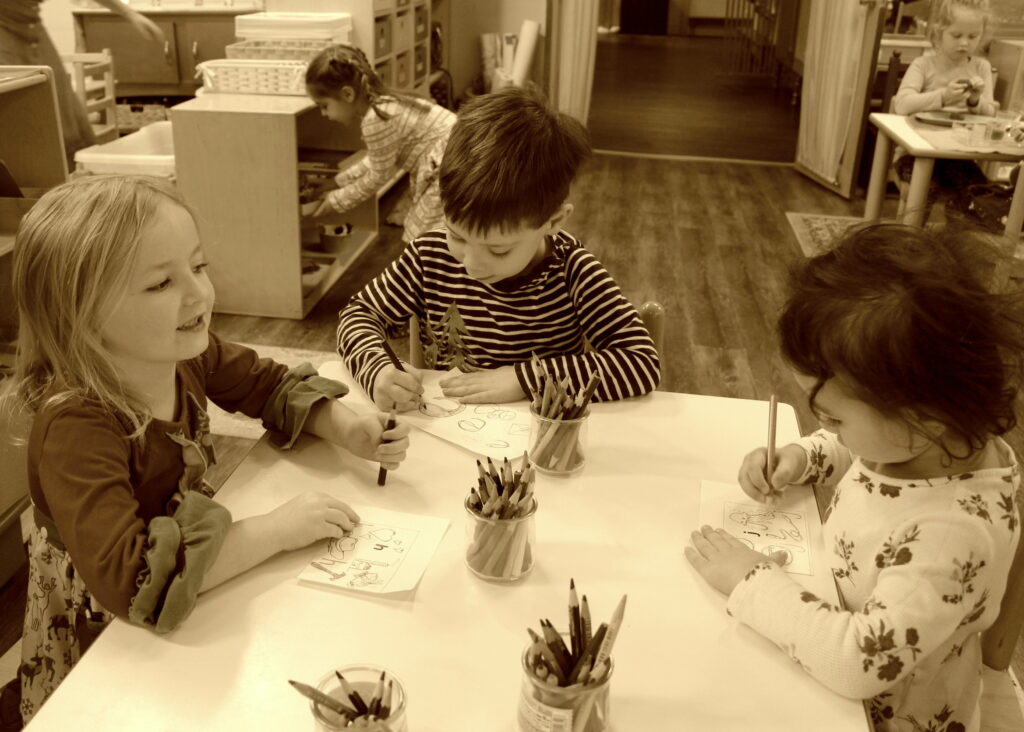



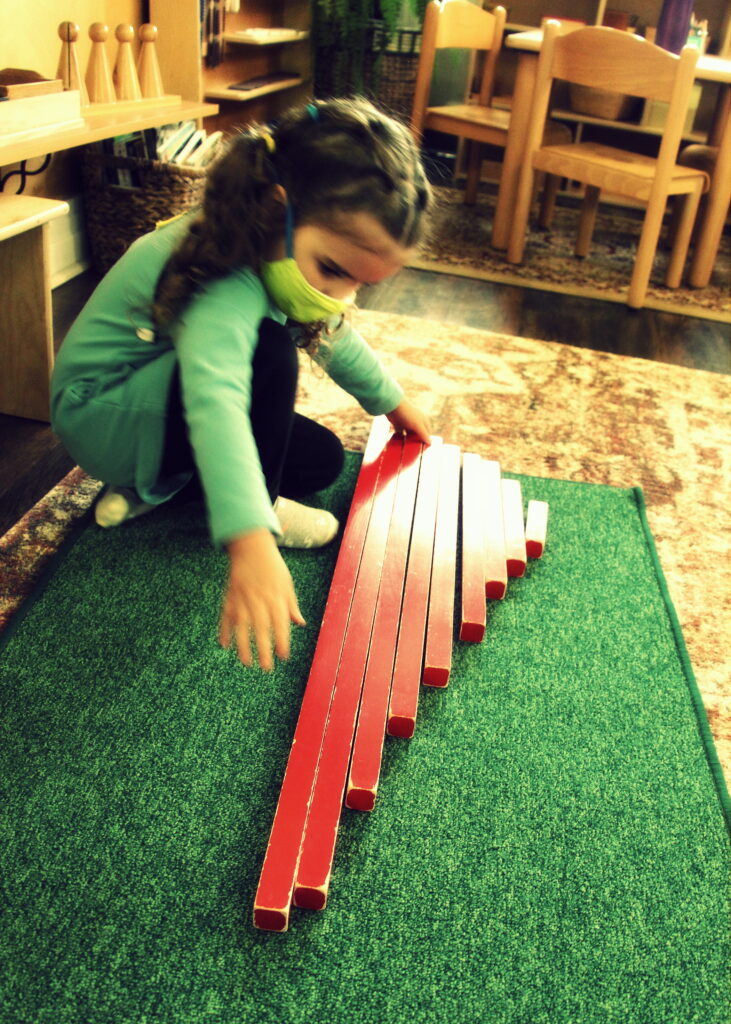

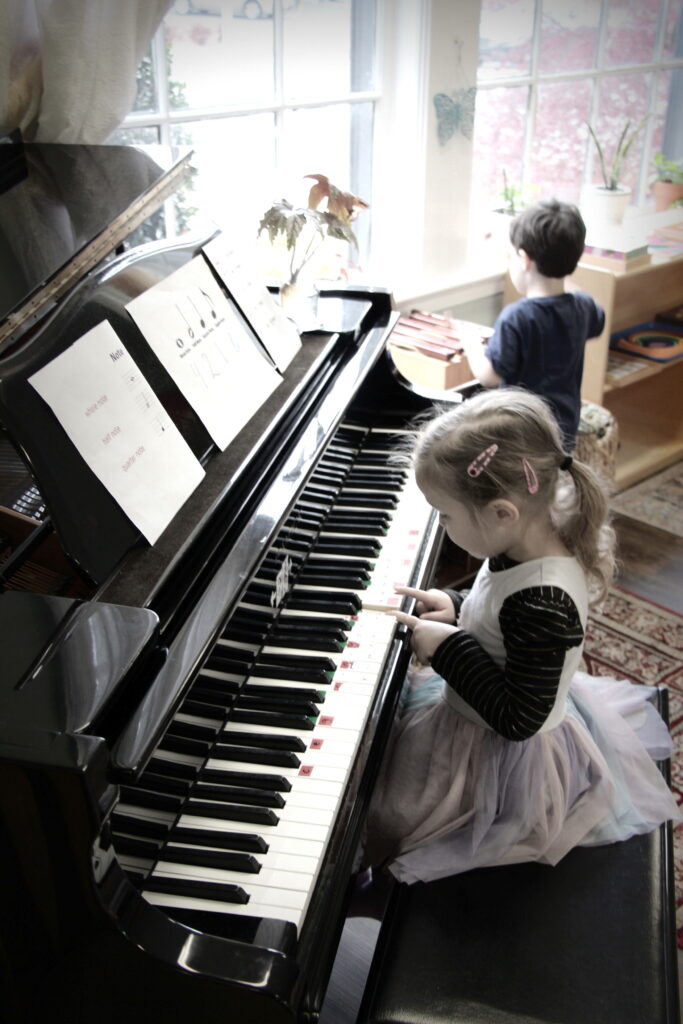






















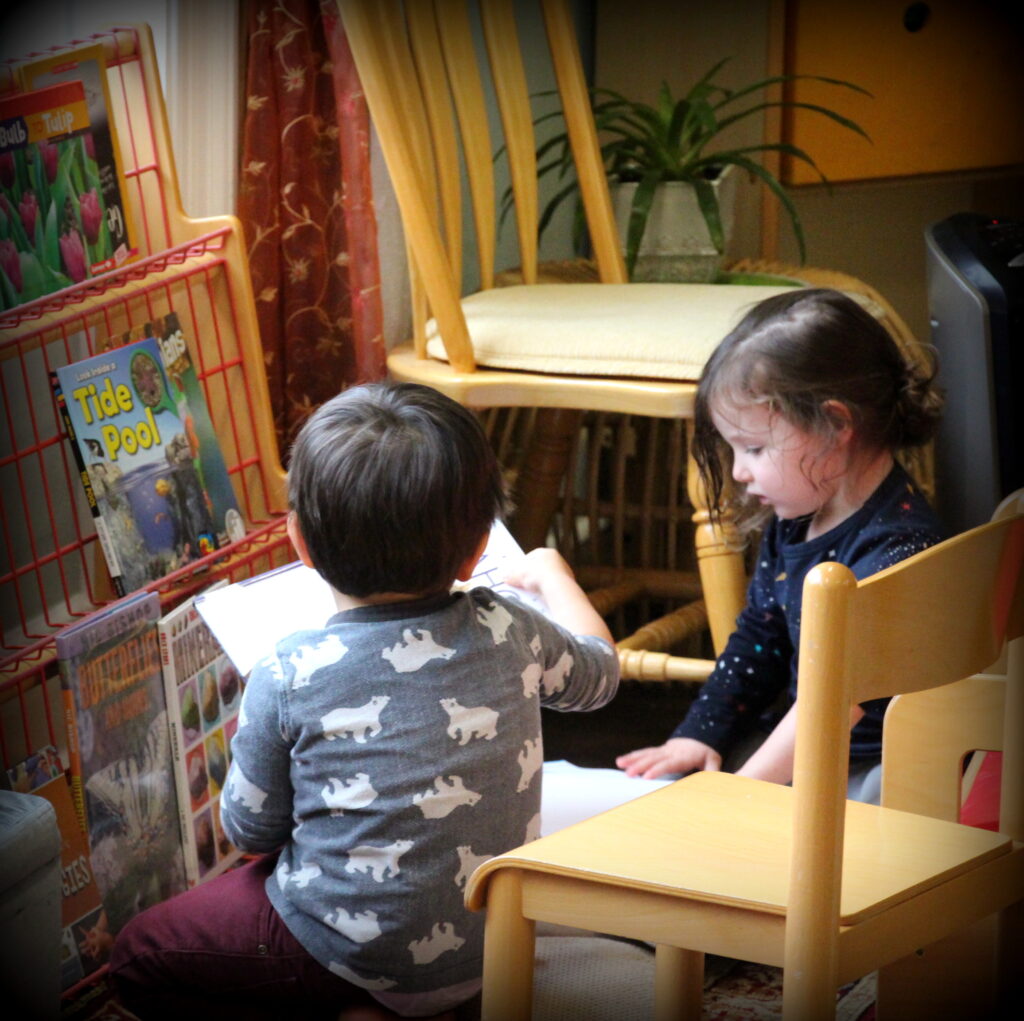



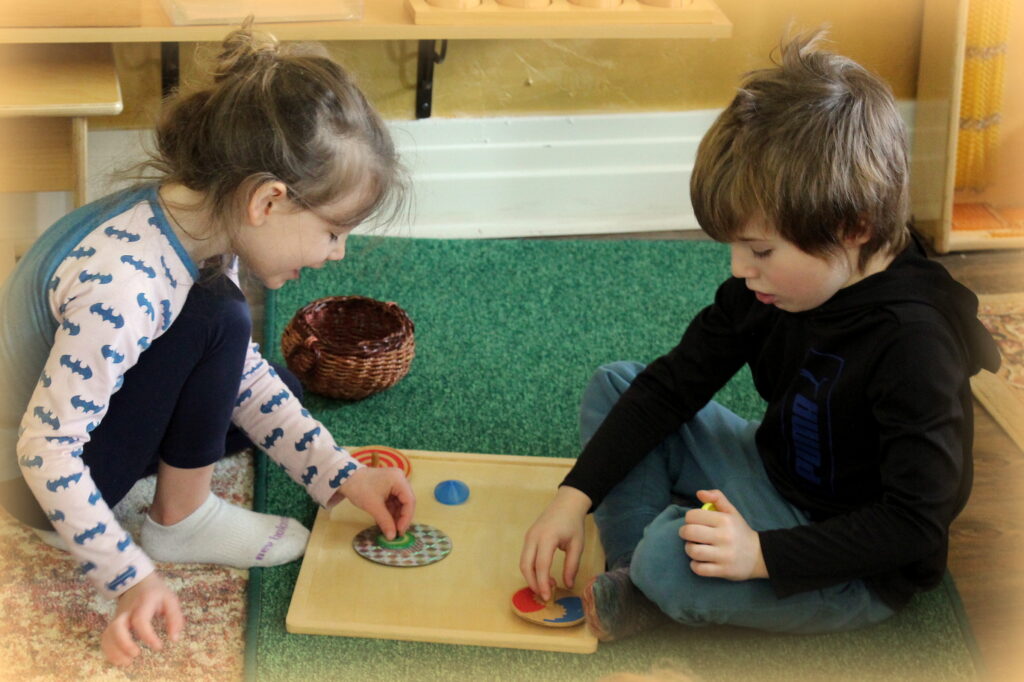



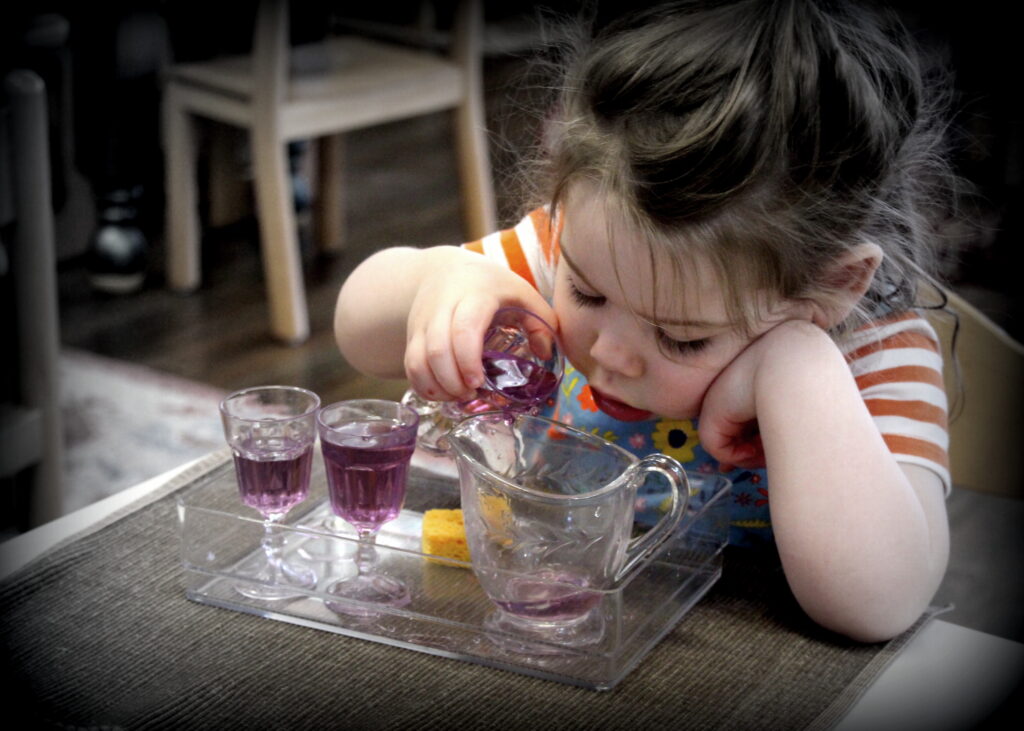








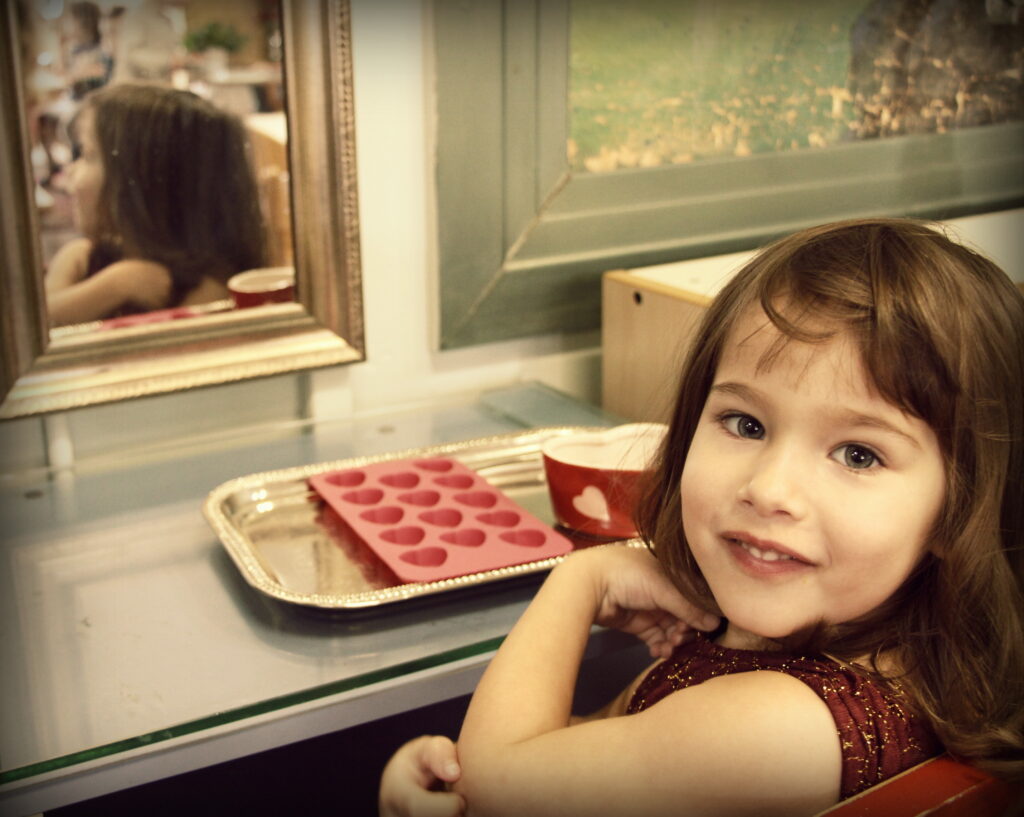









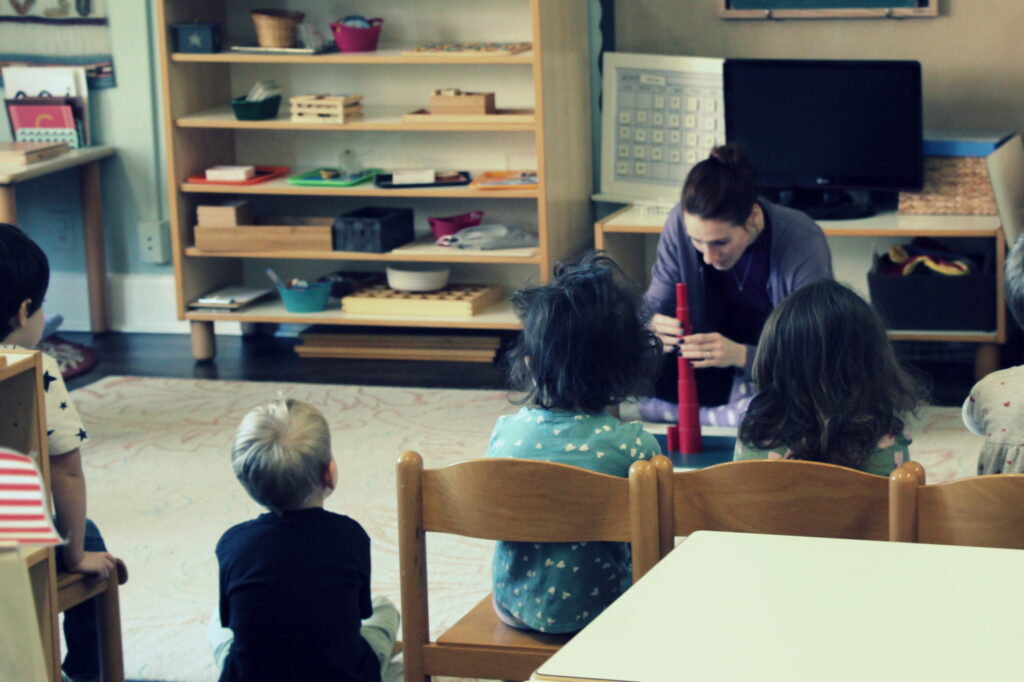


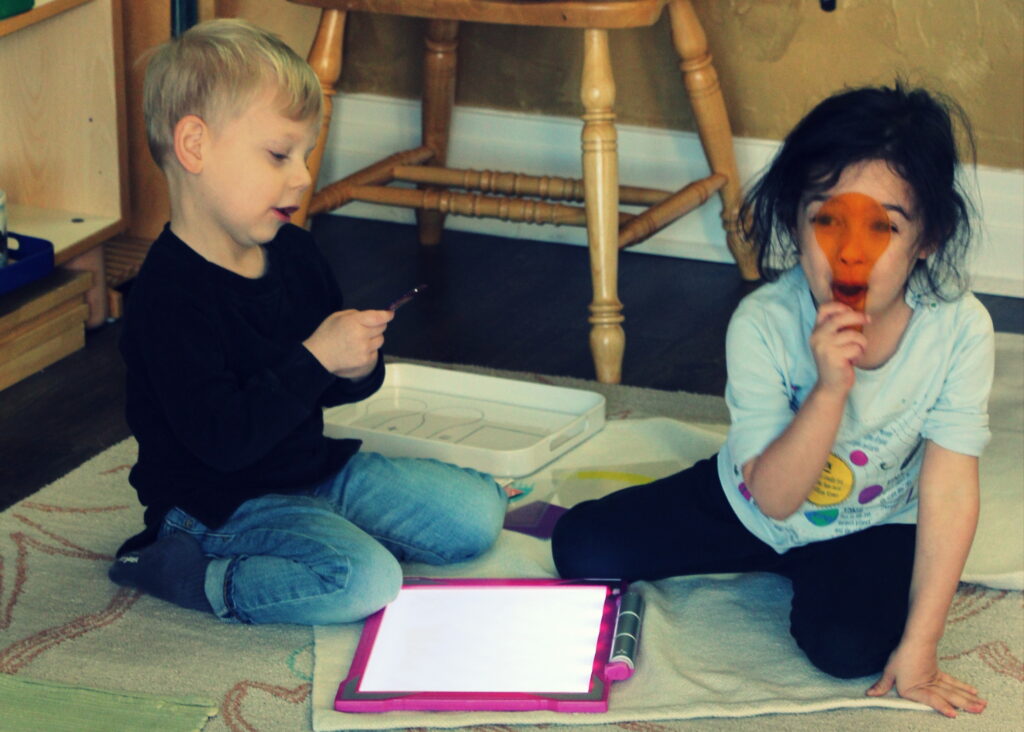















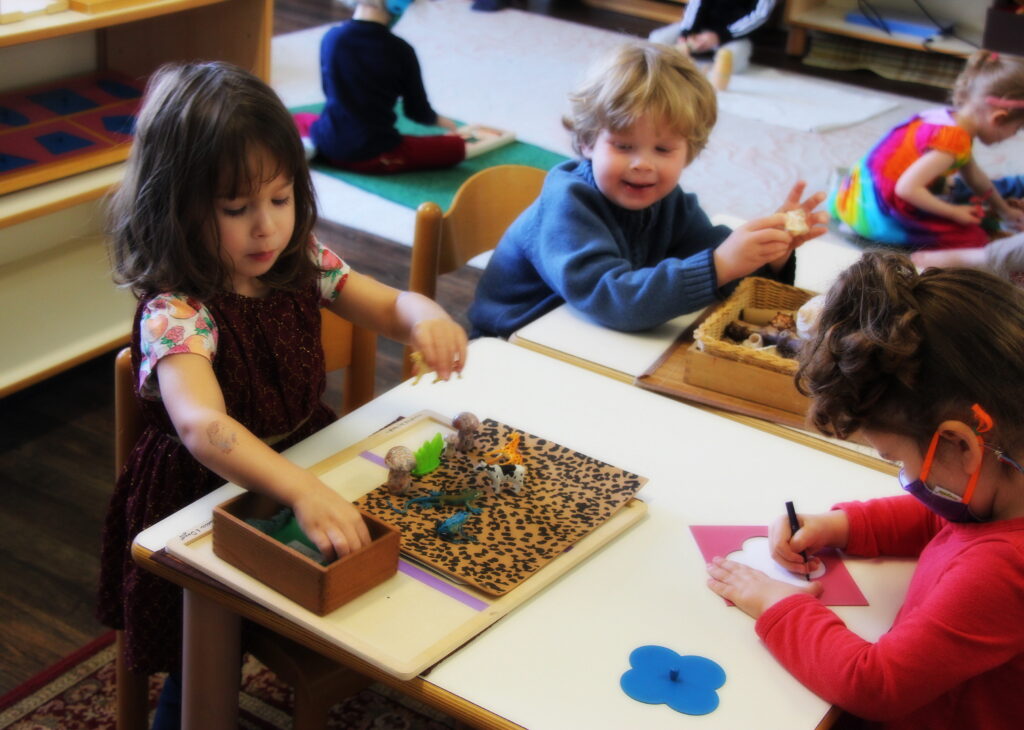







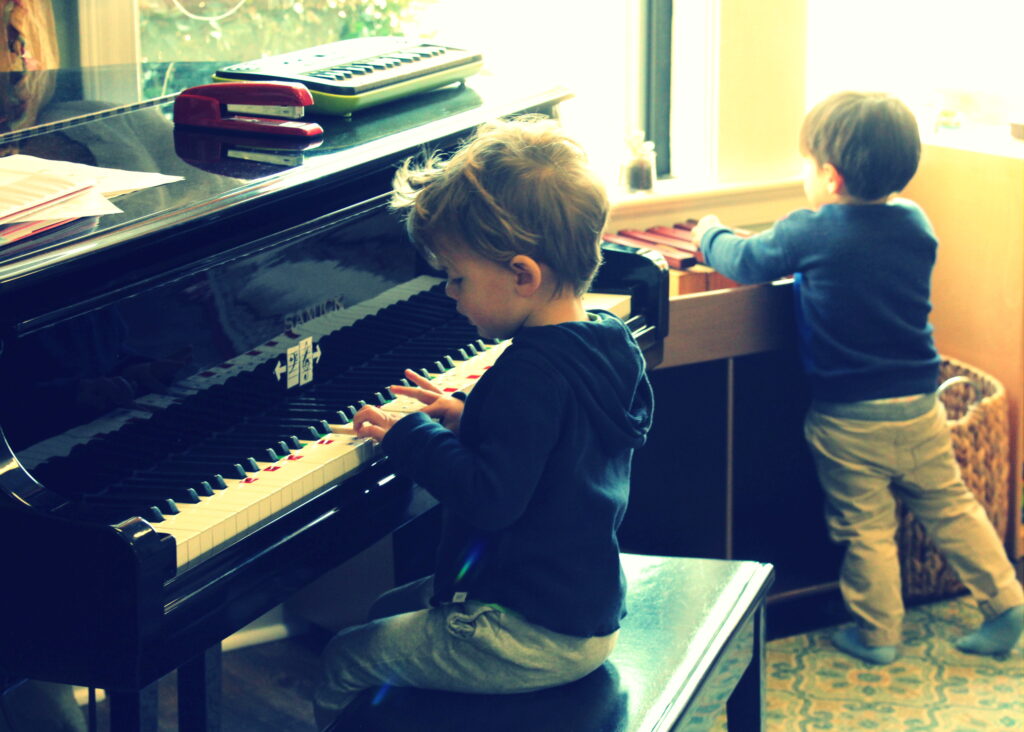



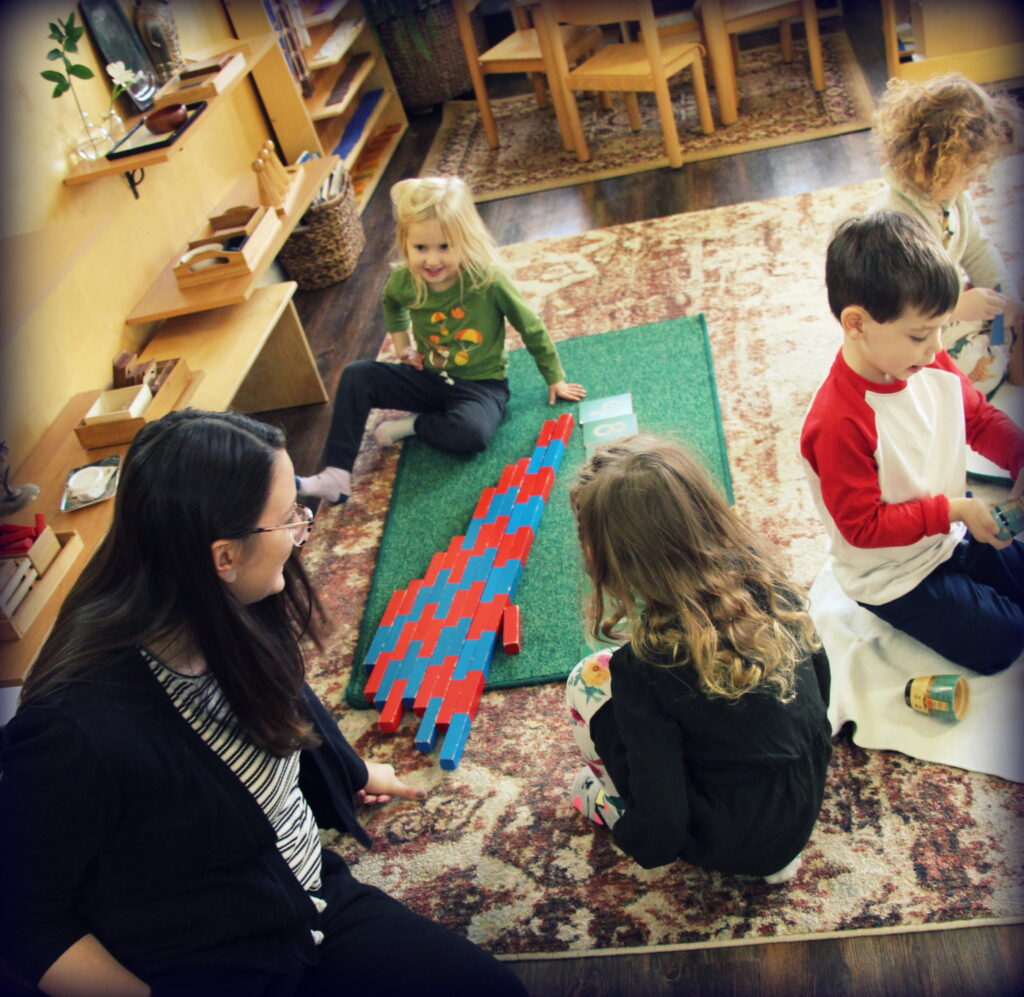

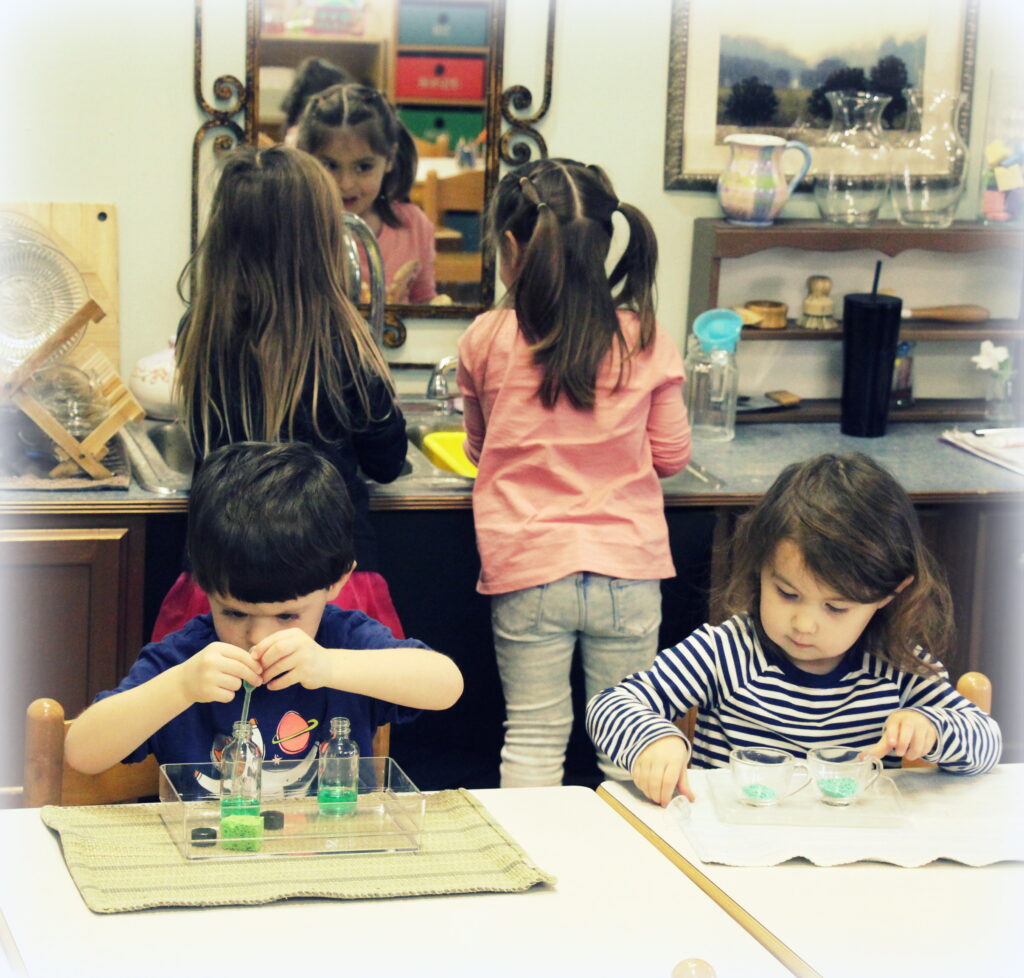




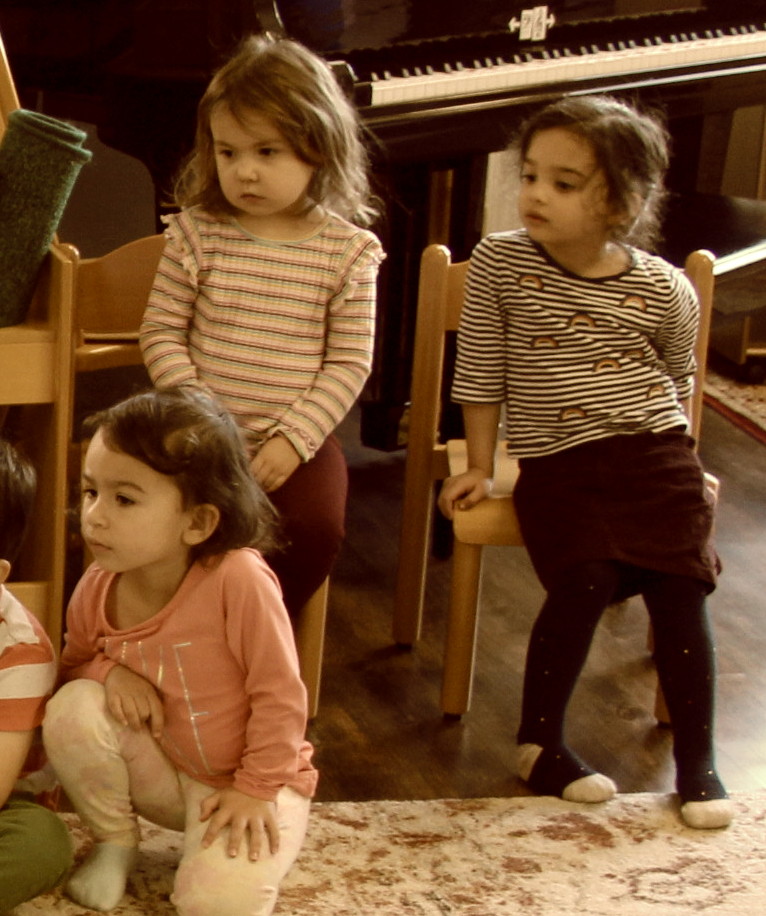
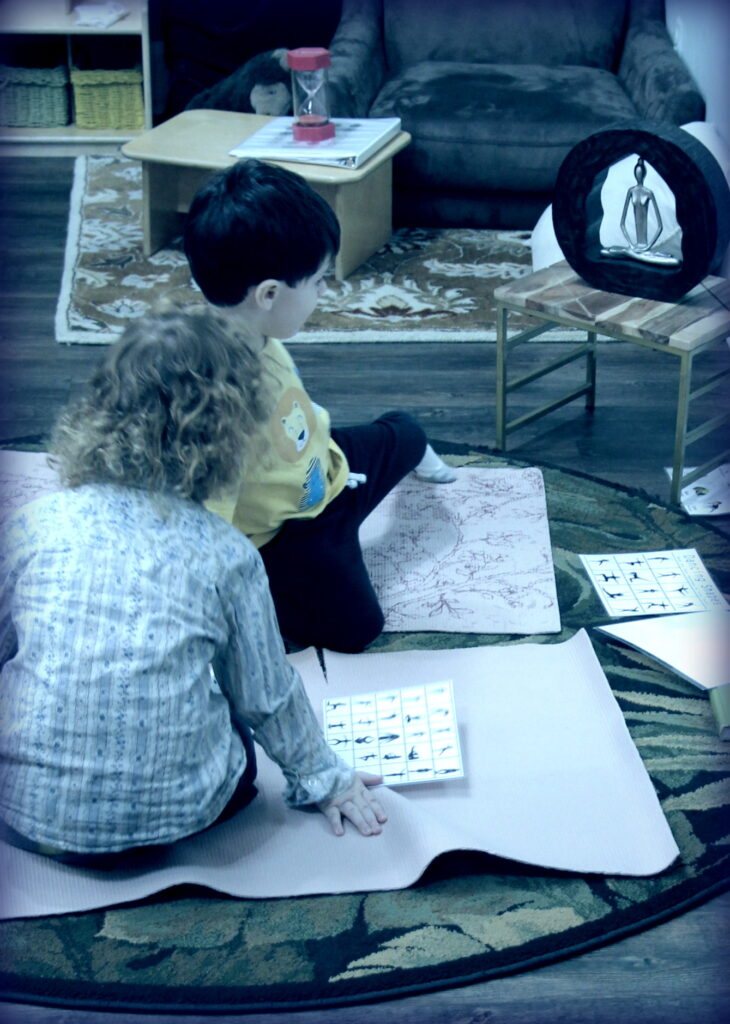
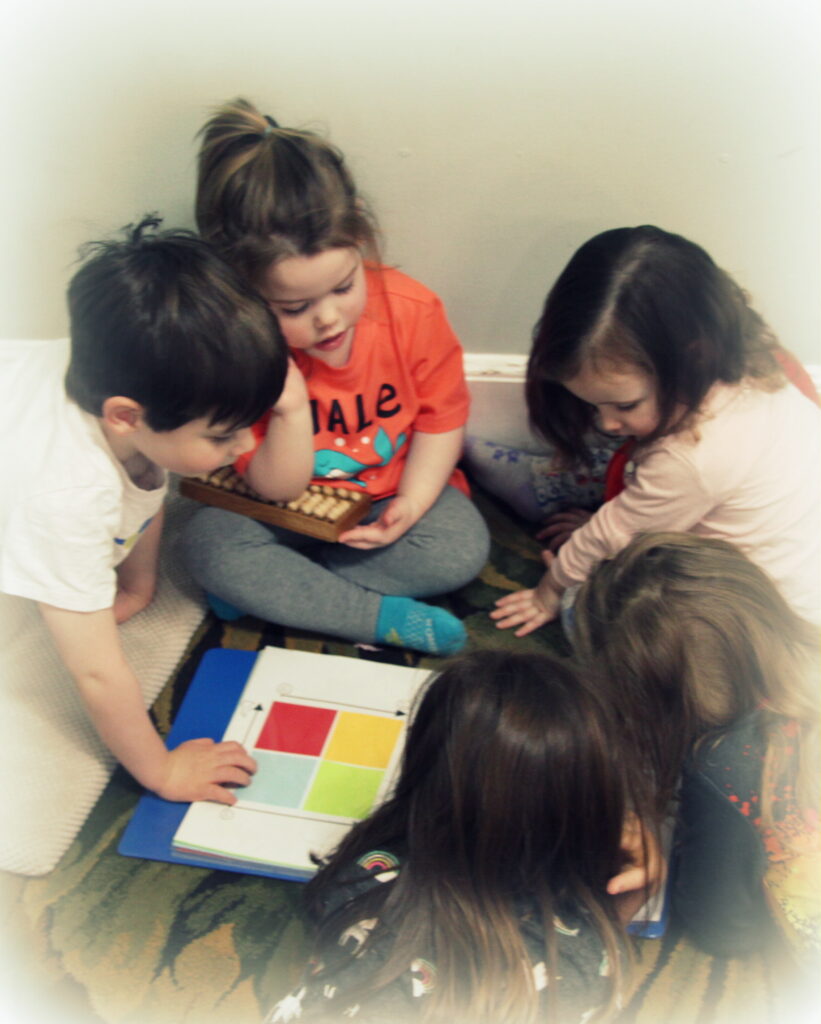
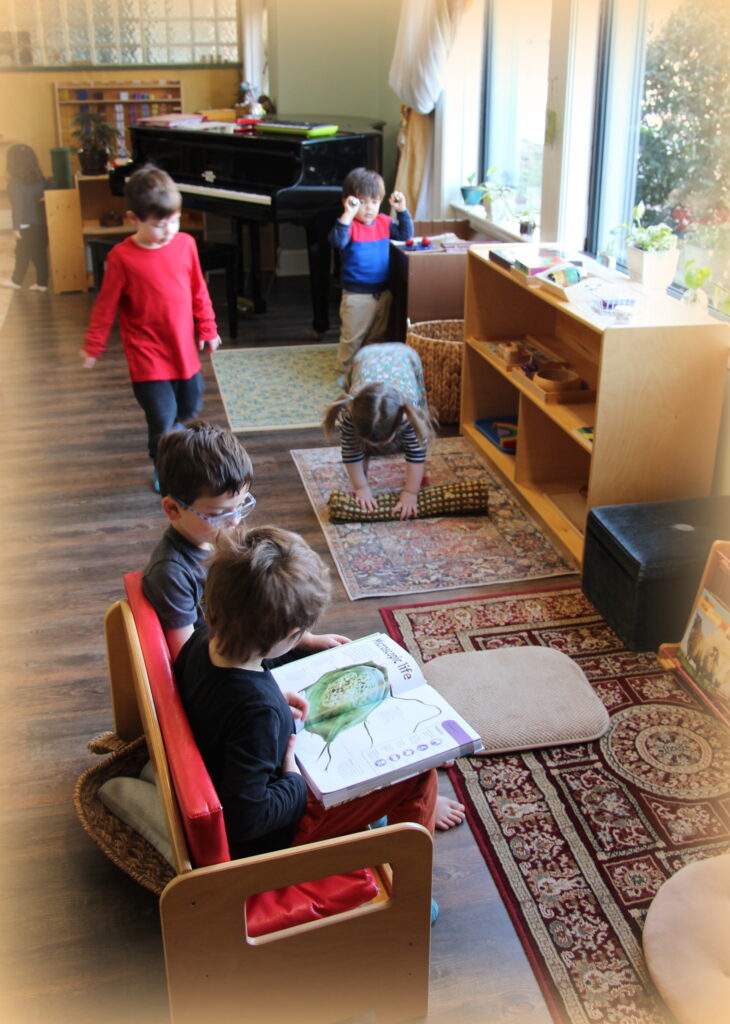



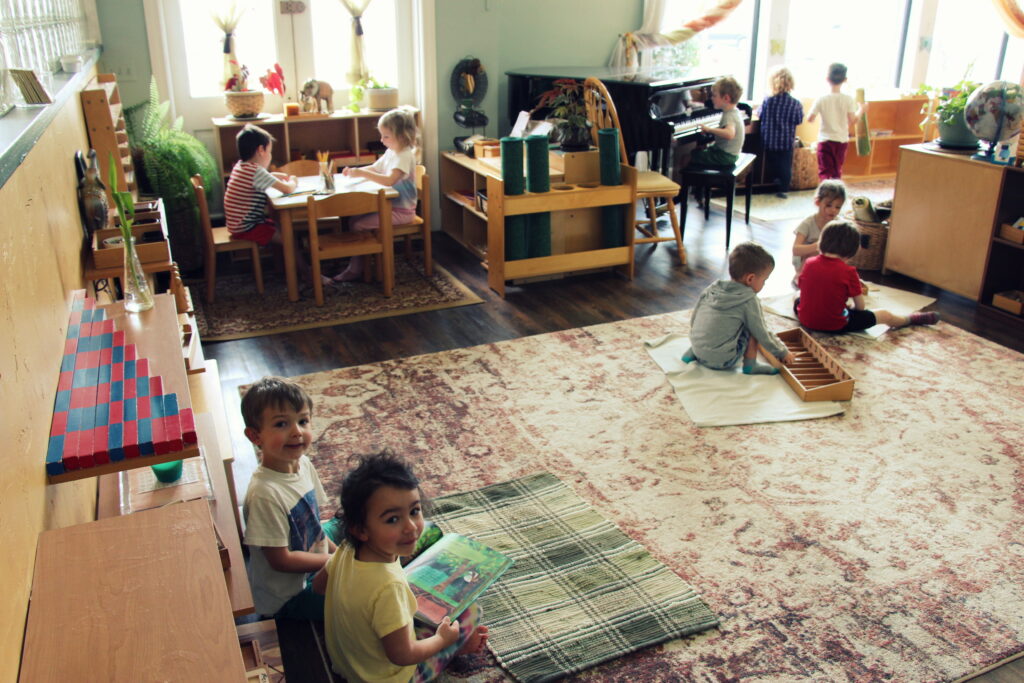

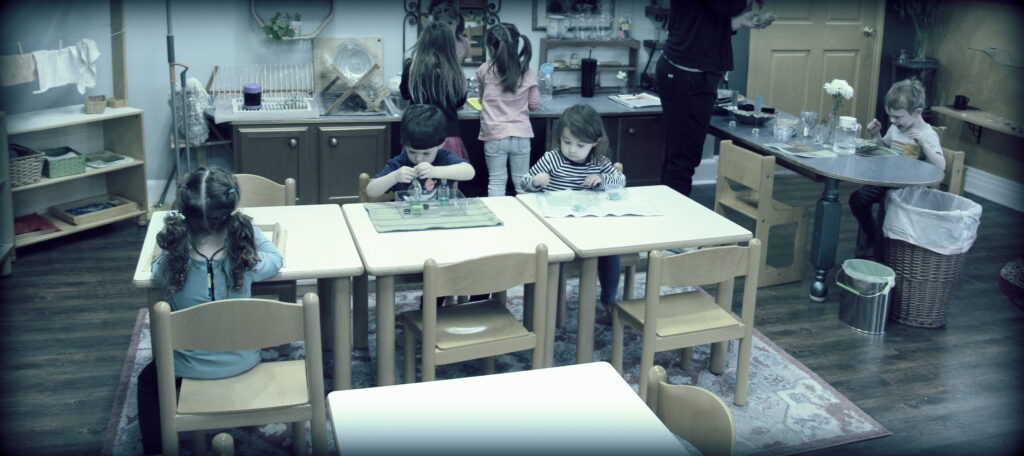










Thank you so much for the update! Always wonderful to learn and see more of what the kids are up to these days.
Hi John, good to hear from you! We appreciate having your support all these years with your little ones!
This is so amazing! I love seeing all the smiles while learning such important lessons. Thank you for everything you’re investing in our little humans. I venture to say they will be smarter and more emotionally well equipped than we were (or are!) 🙂 That’s a vote of confidence for the next generation – thanks to you. This helps me understand what John is trying to tell me on the weekends. – Julie, John’s mom
Thank you for sharing your reaction and positive feedback – it’s touching to hear! It certainly wasn’t always easy growing up in our generation. While some would argue, that’s life and we all turned out all right, many of us educators recognize how it could have been different, and knowing what we know from the past drives us to give today’s children more tools (not just to survive, but to thrive). The Montessori Method gives us the freedom to apply what we wish we knew when we were younger in a meaningful and creative way that is building confidence at an early age. It will be amazing to see where this foundation takes them!
Thanks so much for sharing this sweet update. I’m so impressed with all of our learners and so thankful for the care you all put into creating this environment and lessons for them! Also, I think I may need someone to teach me the binomial and trinomial cubes 😉
Haha! I bet Ozzy could teach you! Needless to say, I was a little intimidated by the looks of the Trinomial Cube 12 years ago when I was first starting Montessori, but once you understand it, this material becomes a favorite lesson that every Montessori teacher enjoys teaching over and over again, and it is a timeless puzzle that never gets old for the students!
Also, it means a lot that you feel so good about everything our students are learning. It’s always nice to hear from you!